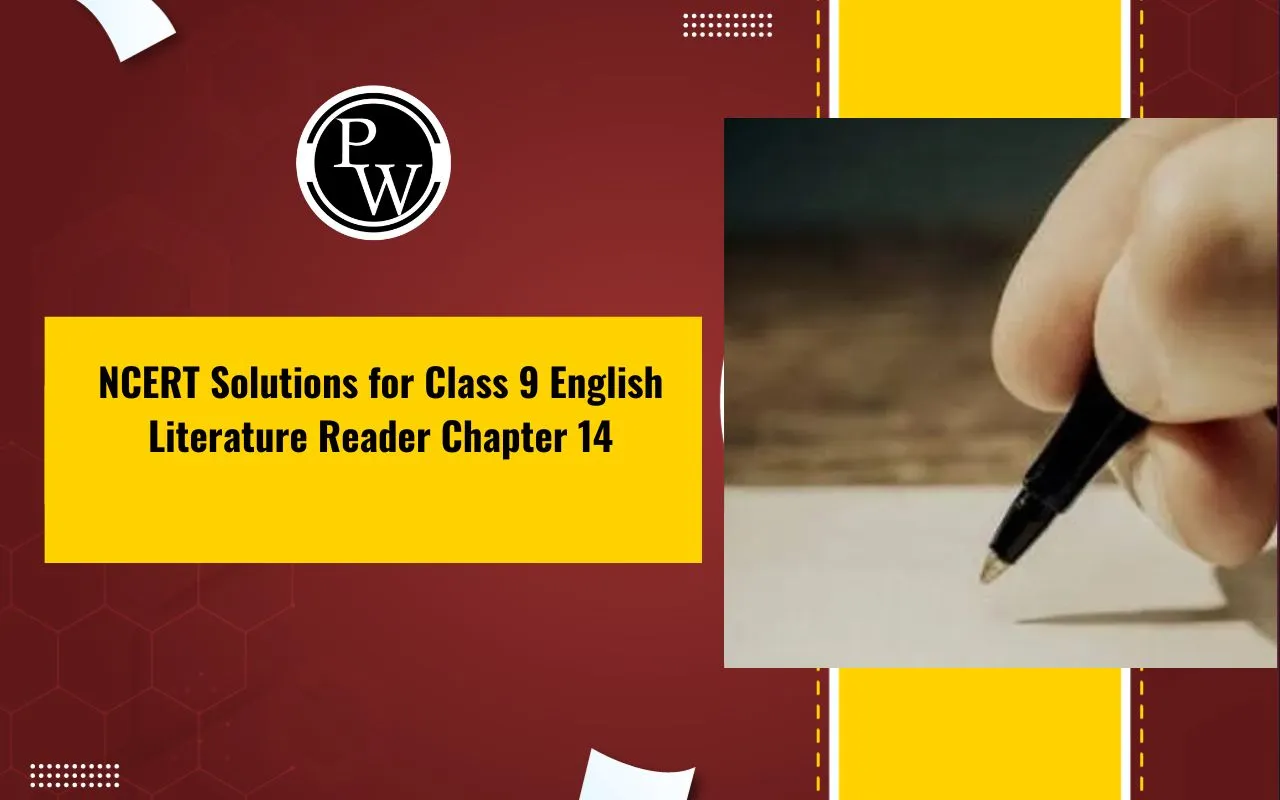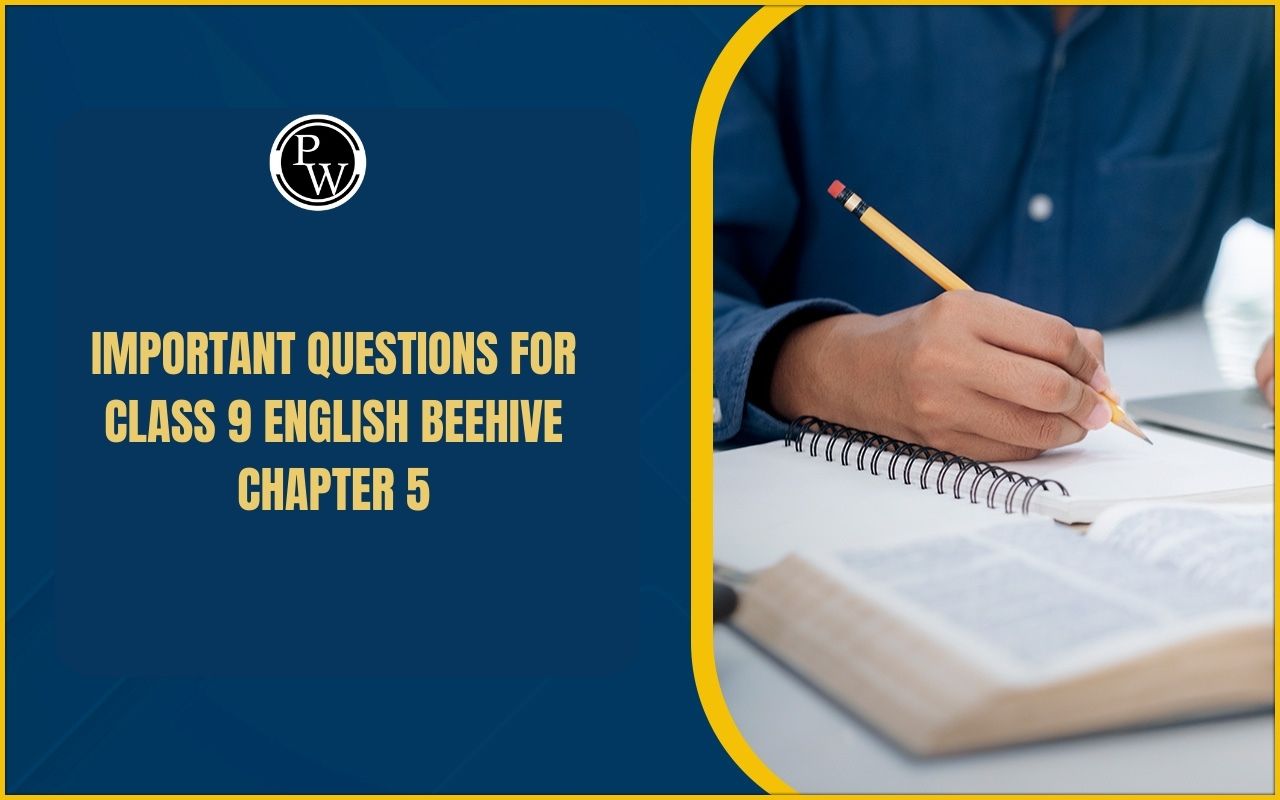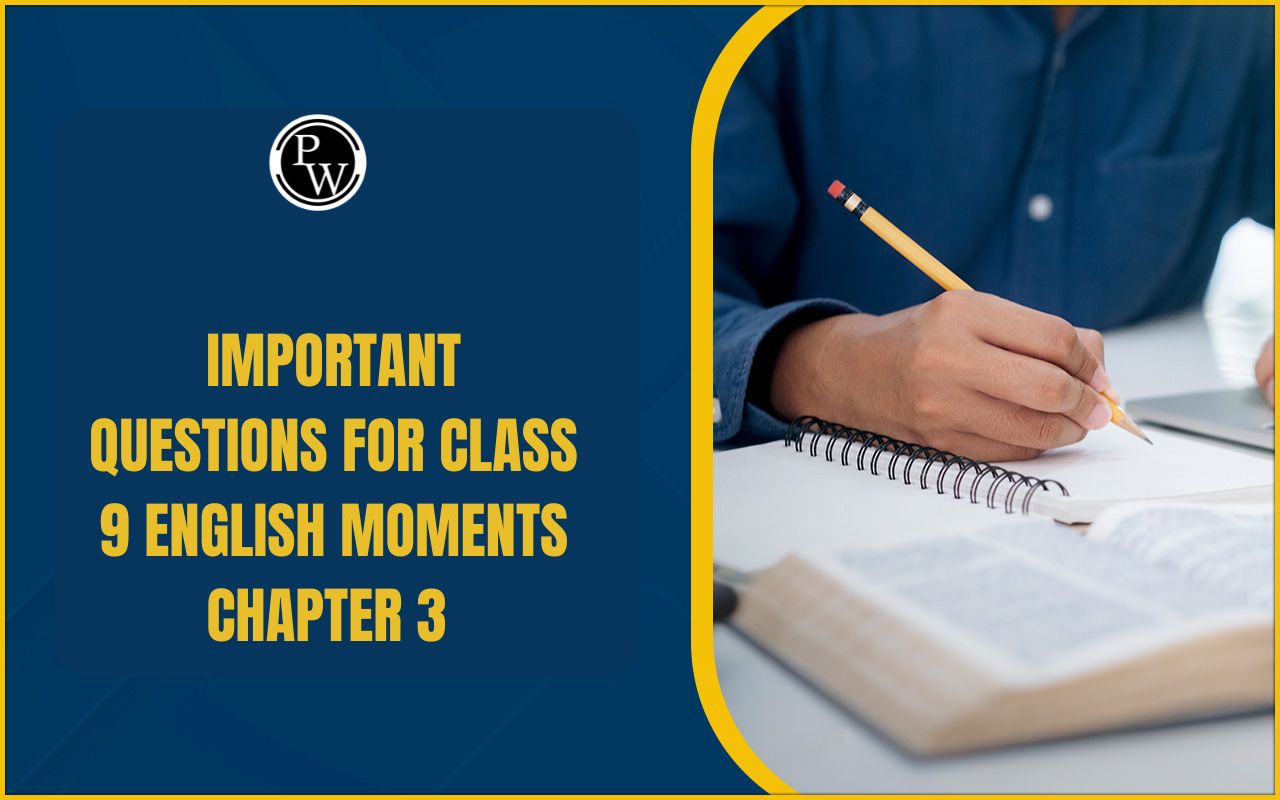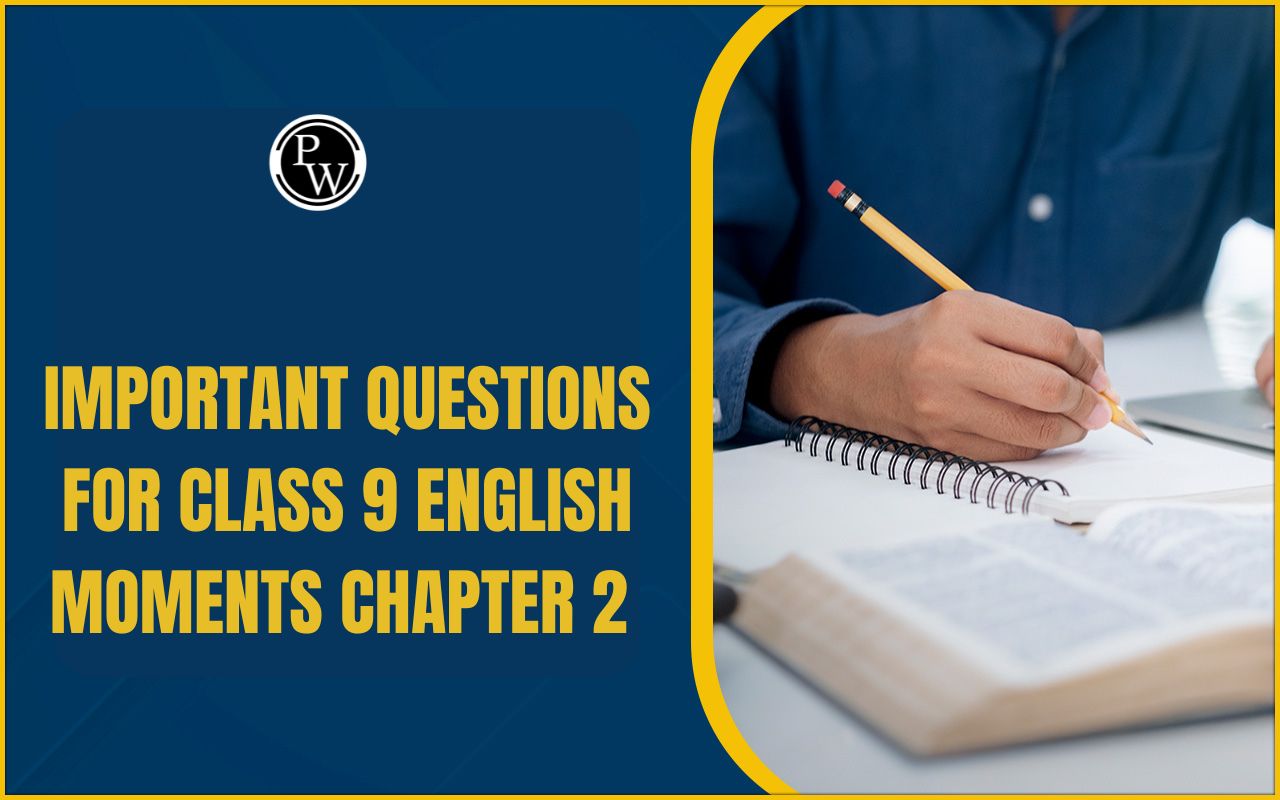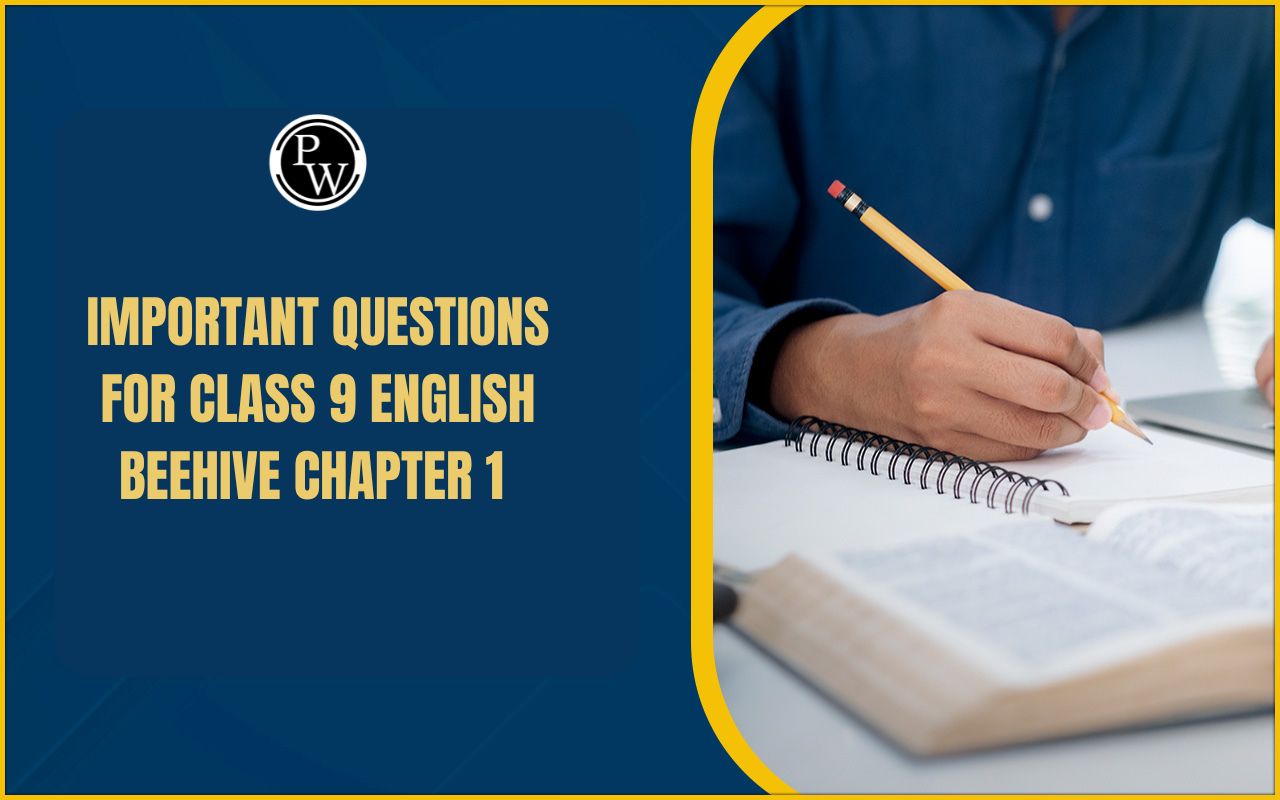
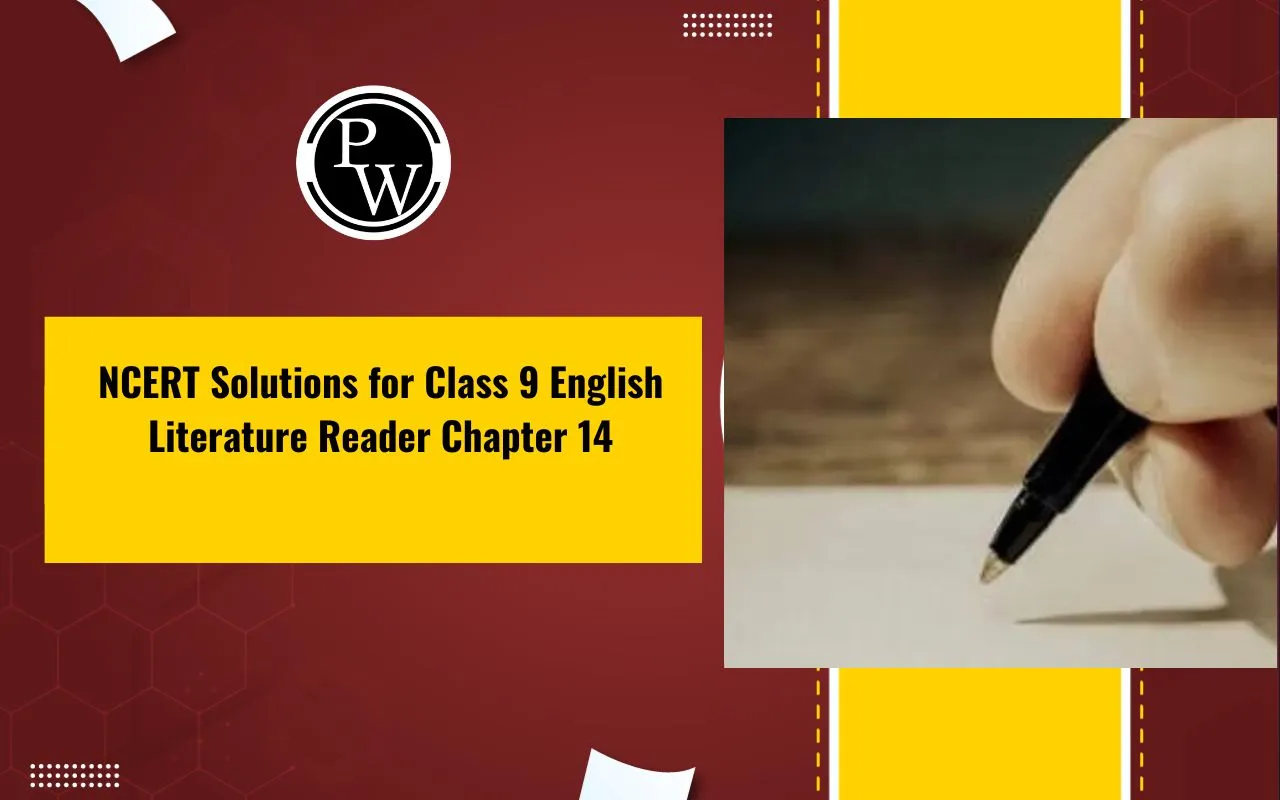
NCERT Solutions for Class 9 English Literature Reader Chapter 14 The Bishop’s Candlesticks help students understand the play in a simple and clear way. This chapter is part of the Class 9 English syllabus and teaches important values like kindness, forgiveness, and change.
The Bishop is a kind man who helps a convict by showing love and care instead of punishment. The solutions cover all The Bishop Candlestick question answer from the textbook, helping students prepare well for exams. With these easy explanations, students can learn the chapter better and enjoy the message it gives.
Class 9 English Literature Reader Chapter 14 The Bishop’s Candlesticks Summary
The Bishop’s Candlesticks is a short and powerful play included in the Class 9 English Literature Reader. The story highlights the kindness and compassion of the Bishop, who helps a convict change his life. The convict enters the Bishop's house, tired and hungry, and steals his valuable silver candlesticks. But when he is caught, the Bishop tells the police that the candlesticks were a gift. This unexpected act of forgiveness surprises the convict and changes his heart.
The story teaches that love, care, and understanding can transform even the hardest of people. The NCERT solutions for The Bishop’s Candlesticks Class 9 help students understand the characters, important scenes, and moral values in simple words. These solutions also make it easy to answer textbook questions and do well in exams.
NCERT Class 9 English Literature Reader Chapter 14 Question Answer
NCERT solutions for Class 9 English Literature Reader Chapter 14 help students clearly understand The Bishop’s Candlesticks through well-structured explanations. These bishop's candlesticks questions and answers focus on the key events, character traits, and the deep message of kindness and forgiveness shown in the play.
Textbook Questions Solved
Discuss In Groups
Question 1. What would you do in the following situations? Give reasons for your answer:
-
If you were travelling by bus and you saw someone pick another passenger’s pocket.
-
If you found a wallet on the road.
-
If you were in a shop and you saw a well- dressed lady shoplifting.
-
If your best friend is getting involved with an undesirable set of friends.
-
If you were in school and you saw one of your classmates steal another child’s pen.
Answer:
-
I would quickly alert the other passengers and try to stop the thief. Picking someone’s pocket is a serious crime, and we should not stay silent when we see something wrong.
-
I would try to find the owner by checking for an ID inside. If not, I would hand it over to the nearest police station. Keeping it would be wrong.
-
I would inform the shopkeeper or the staff quietly. No matter how someone looks, stealing is not right.
-
I would talk to my friend and explain how it can lead to trouble. A good friend always gives honest advice to help the other do the right thing.
-
I would inform the teacher or the principal. Stealing is a bad habit, and the classmate should be helped to understand that it’s wrong.
Question 2. Copy and complete the following paragraph about the theme of the play in pairs:
The play deals with a 1. and 2. Bishop who is always ready to lend a 3. hand to anyone in distress. A 4. breaks into the Bishop’s house and is 5. and warmed. The benevolence of the Bishop somewhat 6. the convict, but, when he sees the silver candlesticks, he 7. them, and runs away. However, he is 8. and brought back. He expects to go back to jail, but the Bishop informs the police they are a 9. The convict is 10. by this kindness of the Bishop and before he leaves he seeks the priest’s blessing.
Answer:
1. convict
2. a
3. helping
4. convict/thief
5. given food
6. changes the heart of
7. steals
8. caught.
9. gift given to him
10. converted/impressed
Question 3. (a) Working in pairs give antonyms of the following words:
Answer:
|
Words |
Words |
|
|
1. |
kind-hearted |
cruel-hearted/ stone- hearted |
|
2. |
credulous |
incredulous |
|
3. |
wild |
controlled/tamed |
|
4. |
sentimental |
unsentimental |
|
5. |
embittered |
delighted |
|
6. |
unscrupulous |
scrupulous |
|
7. |
generous |
mean |
|
8. |
innocent |
guilty |
|
9. |
forgiving |
revengeful |
|
10. |
pious |
impious |
|
11. |
penitent |
remorseless |
|
12. |
trusting |
mistrusting |
|
13. |
suspicious |
credulous |
|
14. |
clever |
foolish |
|
15. |
protective |
harmful |
|
16. |
stem |
soft |
|
17. |
sympathetic |
unsympathetic |
|
18. |
brutal |
kind |
|
19. |
concerned |
unconcerned |
|
20. |
cunning |
straightforward |
|
21. |
benevolent |
malevolent |
|
22. |
understanding |
misunderstanding |
|
23. |
caring |
Indifferent |
|
24. |
honourable |
Dishonourable |
(b) Select words from the above box to describe the characters in the play as revealed by the following lines from the play:
|
Lines from the play |
Speaker |
Quality revealed |
|
|
1. |
“You told him she was feeling poorly, did you ? And so my brother is to be kept out of bed, and go without his supper because you told him she was feeling poorly. ” |
||
|
2. |
….. “take my comforter, it will keep you warm. ” |
||
|
3. |
“If people lie to me they are poorer, not I. ” |
||
|
4. |
“You are like a child. I can’t trust you out of my sight. No sooner my back is turned than you get that minx Marie to sell the silver salt cellars. ” |
||
|
5. |
“My dear there is so much suffering in the world, and I can do so very little. ” |
||
|
6. |
“My mother gave them to me on—on her death bed just after you were born, and…. and she asked me to keep them in remembrance of her, so I would like to keep them. ” |
||
|
7. |
“I am too old a bird to be caught with chaff. ” |
||
|
8. |
“You have your soul to lose, my son.” |
||
|
9. |
“Give me food or I’ll stick my knife in you both and help myself. ” |
||
|
10. |
“…they have made me what I am, they have made me a thief. God curse them all. ” |
||
|
11. |
“Why the devil are you kind to me? What do you want? ” |
||
|
12. |
“I—I—didn’t believe there was any good in the world… but somehow I—I—know you’re good, and —and it’s a queer thing to ask, but could you, would you bless me before I go? ” |
Answer:
|
Lines from the play |
Speaker |
Quality revealed |
|
|
1. |
“You told him she was feeling poorly, did you ? And so my brother is to be kept out of bed, and go without his supper because you told him she was feeling poorly. ” |
Persome |
stem, hard-hearted |
|
2. |
……… “take my comforter, it will keep you warm. ” |
Bishop |
kind-hearted, generous, caring |
|
3. |
“If people lie to me they are poorer, not I.” |
Bishop |
forgiving |
|
4. |
“You are like a child. I can’t trust you out of my sight. No sooner my back is turned than you get that minx Marie to sell the silver salt cellars. ’’ |
Persome |
protective, concerned |
|
5. |
“My dear there is so much suffering in the world, and I can do so very little. ” |
Bishop |
generous, kind-hearted |
|
6. |
“My mother gave them to me on— on her death bed just after you were born, and………….. and she asked me to keep them in remembrance of her, so I would like to keep them. ” |
Bishop |
nostalgia, remembrance |
|
7. |
“I am too old a bird to be caught with chaff.’’ |
Convict |
cunning |
|
8. |
“You have your soul to lose, my son. ” |
Convict |
pity and religiosity |
|
9. |
“Give me food or I’ll stick my knife in you both and help myself. ” |
Convict |
desperate, hard-hearted |
|
10. |
“…they have made me what I am, they have made me a thief. God curse them all. ” |
Convict |
pitiless, revengeful |
|
11. |
“Why the devil are you kind to me? What do you want? ” |
Convict |
pitiless, rudeness |
|
12. |
“I—I—didn’t believe there was any good in the world…but somehow I—I— know you ’re good, and —and it’s a queer thing to ask, but could you, would you bless me before I go?” |
Convict |
repentance,transformation |
Question 4. Answer the following questions briefly:
(a) Do you think the Bishop was right in selling the salt cellars? Why/Why not?
(b) Why does Persome feel the people pretend to be sick?
(c) Who was Jeanette? What was the cause of her death?
(d) The convict says, “I am too old a bird to be caught with chaff.” What does he mean by this statement?
(e) Why was the convict sent to prison? What was the punishment given to him?
(f) Do you think the punishment given to the convict was justified? Why/Why not? Why is the convict eager to reach Paris?
(g) Before leaving, the convict asks the Bishop to bless him. What brought about this change in him?
Answer:
(a) Yes, the Bishop did the right thing. He sold the salt cellars to help Mere Gringoire, who was sick and couldn’t pay her rent. He always believed in helping people in need, even if it meant giving up something valuable.
(b) Persome thinks people pretend to be sick just to get help and money from the Bishop. She feels they take advantage of his kindness, and she doesn't trust their intentions.
(c) Jeanette was the convict’s wife. She fell very sick during a hard time when they had no money or food. The convict tried to help her, but she died because of illness and starvation.
(d) He means he is not easily fooled. After spending so many years in prison, he has become clever and doesn’t trust anyone easily, not even the Bishop’s kindness at first.
(e) The convict stole food to save his sick and starving wife. But instead of understanding his situation, the court punished him harshly. He was sent to prison for ten years.
(f) No, the punishment was too harsh. He stole only to save his wife’s life and had no bad intention. A small punishment would have been enough.
He wants to go to Paris because it's a big city. He hopes to start a new life there without being recognised or caught again.
(g) The Bishop’s kindness and forgiveness touched his heart. Even after he stole the candlesticks, the Bishop saved him by telling the police they were a gift. This act of love and trust changed the convict deeply, and he decided to become a better person.
Question 5. Read the following extract and answer the questions that follow by choosing the correct options.
(A) Monseigneur, the Bishop is a… a hem!
(a) Why does Persome not complete the sentence?
(i) She used to stammer while speaking.
(ii) She was about to praise the Bishop.
(iii) She did not wish to criticise the Bishop in front of Marie.
(iv) She had a habit of passing such remarks.
Answer:
(iii) She did not wish to criticise the Bishop in front of Marie.
(b) Why is she angry with the Bishop?
(i) The Bishop has sold her salt cellars.
(ii) The Bishop has gone to visit Mere Gringoire.
(iii) He showed extra concern for Marie.
(iv) She disliked the Bishop.
Answer:
(i) The Bishop has sold her salt cellars.
(B) She sent little Jean to Monseigneur to ask for help.
(a) Who sent little Jean to the Bishop?
(i) Mere Gringoire
(ii) Marie
(iii) Persome
(iv) Marie’s mother
Answer:
(i) Mere Gringoire
(b) Why did she send Jean to the Bishop?
(i) so that he could pray for her.
(ii) as she knew that he was a generous person
(iii) as she was a greedy woman
(iv) as she was a poor woman
Answer:
(ii) as she knew that he was a generous person
(C) I offered to take her in here for a day or two, but she seemed to think it might distress you.
(a) The Bishop wanted to take Mere Gringoire in because .
(i) she was sick.
(ii) she had no money.
(iii) she was unable to pay the rent of her house.
(iv) she was a close friend of Persome.
Answer:
(iii) she was unable to pay the rent of her house.
(b) Persome would be distressed on Mere Gringoire’s being taken in because .
(i) she did not want to help anyone.
(ii) she felt that Mere Gringoire was taking undue advantage of the Bishop.
(iii) she was a self-centred person.
(iv) she would be put to a great deal of inconvenience.
Answer:
(ii) she felt that Mere Gringoire was taking undue advantage of the Bishop.
Question 6. The term irony refers to a discrepancy, or disagreement, of some sort. The discrepancy can be between what someone says and what he or she really means or verbal irony. The discrepancy can be between a situation thq| one would logically anticipate or that would seem appropriate and the situation that actually develops or situational irony. The discrepancy can even be between the facts known to a character and the facts known to us, the readers or audience or dramatic irony. Working in groups of four complete the following table. Find instances of irony from the play and justify them.
|
Extract |
Justification |
|
I believe you want to convert me; save my soul, don’t you call it? Well, it’s no good………. see? I don’t want any damned religion. ● ________________________________ ●_________________________________ |
Later, the convict says, “its a queer thing to ask, but-could you, would you bless me before I go.” ●______________________________ ●______________________________ |
|
● Why the devil do you leave the window unshuttered and the door unbarred so that anyone can come in? ’ ●__________________________________ ●__________________________________ |
If the door had been barred the convict couldn’t have entered the house. ______________________________ ●______________________________ |
|
● My mother gave them to me on………………………. on her death bed just after you were bom, and…………….. and she asked me to keep them in remembrance of her, so I would like to keep them. ● _______________________________ ● _______________________________ |
Later he hands the convict the candlesticks and tells him to start a new life. ● _________________________ ● __________________________ |
Answer:
|
Extract |
Justification |
|
“I believe you want to convert me; save my soul, don’t you call it? Well, it’s no good… see? I don’t want any damned religion.” |
The convict speaks rudely and says he doesn’t believe in kindness or religion. Ironically, at the end, he asks the Bishop for a blessing, showing that he is spiritually touched. |
|
Later, the convict says, “It’s a queer thing to ask, but—could you, would you bless me before I go?” |
This shows a complete change in the convict. Earlier, he hated anything religious, but now he is deeply moved by the Bishop’s goodness. |
|
“Why the devil do you leave the window unshuttered and the door unbarred so that anyone can come in?” |
The convict is shocked by how open and trusting the Bishop is. Ironically, this open door allows the convict to enter—and also find hope and change inside the same house. |
|
If the door had been barred, the convict couldn’t have entered the house. |
It’s ironic that what seemed like carelessness actually became the reason for the convict’s transformation. |
|
“My mother gave them to me on… her death bed… I would like to keep them.” |
The Bishop calls them precious and emotional gifts. But later, he gives them away to the very man who stole them, showing his selflessness. |
|
Later, he hands the convict the candlesticks and tells him to start a new life. |
It’s ironic that something so personal is willingly given away to help a stranger. His act of sacrifice helps bring the convict back to the path of goodness. |
|
“This gentleman is my very good friend.” |
The Bishop calls the thief his friend. It’s ironic but also deeply moving, showing the Bishop’s belief in forgiveness and change. |
|
“You are like a child.” |
The Bishop’s innocence and kindness seem naive, but that child-like faith is what melts the heart of a hardened criminal. |
Question 7. Identify the situations which can be termed as the turning points in the convict’s life.
Answer:
The convict’s life changed at several key moments:
-
His wife’s illness – He was jobless, poor, and his wife was sick and starving. To save her, he stole food. This act of theft was the first turning point that sent him to jail for ten years.
-
Life in prison – In jail, he was treated very badly. He was chained, beaten, and fed dirty food. This harsh treatment made him bitter and angry. He lost all trust in people and became hard-hearted. This was another turning point that changed him into a rough and angry man.
-
Meeting the Bishop – When he escaped and came to the Bishop’s house, the Bishop welcomed him kindly. Even though he stole the Bishop’s candlesticks, this kindness touched him deep inside.
-
The Bishop’s forgiveness – The biggest turning point was when the Bishop told the police that the candlesticks were a gift. This unexpected kindness shocked the convict and melted his heart. It made him realise that there was still goodness in the world. That moment helped him become a better person again.
Question 8. The convict is the product of the society he lived in, both in terms of the suffering that led him to steal a loaf of bread, as well as the excessive sentence he received as punishment for his “crime”. He was imprisoned for stealing money to buy food for his sick wife, this filled with despair, hopelessness, bitterness and anger at the injustice of it all.
Conduct a debate in the class (in groups) on the following topic. Instruction for conducting a debate (and the use of appropriate language) are given in the unit ‘Children’ of the Main Course Book.
‘Criminals are wicked and deserve punishment ’
Answer:
Respected teacher and my dear friends,
I stand before you today to speak against the statement that "Criminals are wicked and deserve punishment."
Let’s think about the convict in The Bishop’s Candlesticks. Was he born a criminal? No. He was once a regular man with a wife and a home. But then life changed. He lost his job, and his wife became very sick. With no money and no help, he did the only thing he could—he stole some food to save her life.
Yes, stealing is wrong. But isn’t letting someone die worse?
He was caught and given a harsh punishment—ten years in prison for a small crime. The jail didn’t help him change or grow. Instead, it made him bitter, angry, and hopeless. It turned him into someone who had no trust in people and no belief in kindness.
But when he met the Bishop, something changed. The Bishop treated him with kindness and love, not punishment. And that simple act turned the convict back into a good human being. He was no longer angry. He even asked for the Bishop’s blessing before leaving.
So friends, not all criminals are wicked. Some are just people who were failed by society. What they need is not always punishment, but help, understanding, and a chance to change.
Thank you.
Question 9. The convict goes to Paris, sells the silver candlesticks and starts a business. The business prospers and he starts a reformatory for ex-convicts. He writes a letter to the Bishop telling him of this reformatory and seeks his blessings.
As the convict, Jean Valjean, write the letter to the Bishop:
Answer:
Jean Valjean Reformatory
Paris
20th March, 20XX
Dear and respected Bishop,
I hope this letter finds you in good health and peace. I’m writing to thank you from the bottom of my heart. Your kindness changed my life completely. You gave me not just your silver candlesticks, but also a chance to become a better person.
After I left your home, I came to Paris and sold the candlesticks. With that money, I started a small business. Slowly, it began to grow. I worked hard and saved more money. Today, I’m running a successful business, but more importantly, I have also opened a reformatory for ex-convicts—people like me who just needed a second chance.
Here, we teach them to work, live honestly, and believe in themselves again. We help them learn new skills and provide a safe place where they are treated with respect. Every evening, we pray together and talk about how we can become better human beings.
This change in me happened only because of you, Father. Your trust and forgiveness gave me the strength to change. Now, I want to help others like me find hope and a new life too.
We would be honored if you could come to our annual function at the reformatory. Your presence and blessing will mean a lot to all of us.
With deep respect and gratitude,
Yours sincerely,
Jean Valjean
NCERT Solutions for Class 9 English Literature Reader Chapter 14 The Bishop’s Candlesticks PDF Download
Students looking for easy and clear answers can now access the NCERT Solutions for Class 9 English Literature Reader Chapter 14, The Bishop’s Candlesticks in PDF format. Whether you’re getting ready for exams or joining a class discussion, these solutions will help you understand the play’s message, theme, and characters more deeply.
NCERT Solutions for Class 9 English Literature Reader Chapter 14
Study without using the internet
NCERT Solutions for Class 9 English Literature Reader Chapter 14 FAQs
What is the main theme of Chapter 14 The Bishop Candlesticks?
How can NCERT Solutions for Class 9 English Literature Reader Chapter 14 The Bishop Candlesticks help in exam preparation?
Who are the main characters in The Bishop Candlesticks?
What is the significance of the candlesticks in the story?

